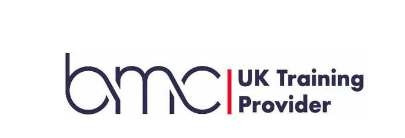Introduction:
In today's fast-paced industrial landscape, effective maintenance planning and scheduling have become integral components for organizations striving for operational excellence. The ability to optimize maintenance activities not only ensures equipment reliability but also minimizes downtime, boosts productivity, and extends the lifespan of assets. This article will delve into the importance of maintenance planning and scheduling training, providing insights into the key elements that make a successful maintenance strategy.
Understanding the Significance of Maintenance Planning and Scheduling
In the realm of industrial operations, the role of maintenance planning and scheduling cannot be overstated. Efficiently planned and scheduled maintenance activities help organizations maintain a competitive edge by reducing unplanned downtime, preventing equipment failures, and optimizing resource utilization.
The Impact of Inadequate Maintenance Planning
Without proper planning, maintenance can become a reactive, costly endeavor. Unexpected breakdowns, emergency repairs, and inefficiencies in resource allocation can lead to substantial financial losses. Addressing these challenges requires a proactive approach through effective maintenance planning and scheduling.
Key Components of Maintenance Planning and Scheduling Training
A. Risk Assessment and Management
Proper training emphasizes the importance of identifying and mitigating potential risks. This includes evaluating equipment conditions, predicting failure points, and implementing preventive measures to minimize the impact of failures.
B. Utilizing Technology for Maintenance Optimization
Training programs should cover the latest technological tools and software designed to streamline the maintenance planning and scheduling process. This includes Computerized Maintenance Management Systems (CMMS) and predictive maintenance tools that use data analytics to forecast equipment failures.
C. Resource Allocation and Time Management
Effective planning involves allocating resources efficiently and managing time constraints. Training programs should equip participants with the skills to prioritize tasks, allocate manpower, and optimize the use of tools and materials to maximize productivity.
Benefits of Maintenance Planning and Scheduling Training
A. Cost Reduction and Increased ROI
Properly trained maintenance professionals can identify cost-effective strategies, leading to reduced operational costs and increased return on investment. This includes minimizing the use of spare parts, optimizing labor costs, and extending equipment lifespan.
B. Enhanced Equipment Reliability
Training ensures that maintenance teams are well-equipped to predict and prevent potential equipment failures, thereby enhancing overall reliability. This proactive approach minimizes unexpected downtime and improves the longevity of assets.
C. Improved Safety and Compliance
Compliance with safety regulations is paramount in industrial settings. Training programs should emphasize the importance of safety protocols and compliance, reducing the risk of accidents and ensuring a secure working environment.
Implementing Maintenance Planning and Scheduling Strategies
A. Creating a Maintenance Schedule
Training participants should learn how to create comprehensive maintenance schedules, taking into account equipment criticality, production schedules, and resource availability. This includes planning routine maintenance activities, inspections, and necessary repairs.
B. Continuous Improvement and Feedback Mechanisms
Maintenance planning is an iterative process. Training programs should instill a culture of continuous improvement, encouraging participants to analyze feedback, learn from experiences, and adapt strategies for ongoing optimization.
Conclusion:
In conclusion, the importance of maintenance planning and scheduling training cannot be overstressed in today's competitive industrial landscape. Organizations that invest in equipping their maintenance teams with the necessary skills and knowledge will reap the benefits of increased efficiency, reduced costs, and improved overall performance. The implementation of effective maintenance strategies not only safeguards assets but also contributes significantly to the success and sustainability of the business. By prioritizing maintenance planning and scheduling training, organizations can position themselves at the forefront of operational excellence, ensuring long-term success in the ever-evolving industrial environment.





Comments